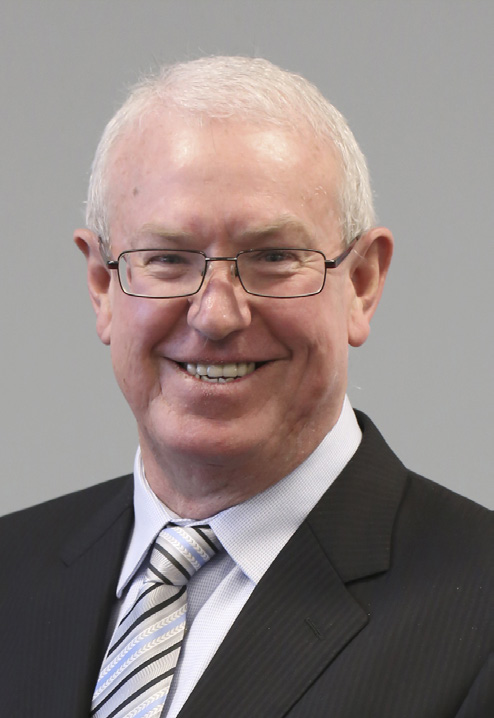Years working in irrigation: 4
Years as manager: 22
Number of employees: 160
Size of service area in acres: 939,000
Amount of water diverted for irrigation per year in acre-feet: 243,000–730,000
Main crops irrigated: Rice, cotton, wine grapes, almonds, walnuts, citrus, prunes
Predominant irrigation methods: Drip, flood
 Irrigation Leader: What is the top issue facing your irrigation district today?
Irrigation Leader: What is the top issue facing your irrigation district today?
Brett Jones: The two issues that we’re facing are drought and water reform. This is our second year of severe drought, and we’re seeing record-low rainfalls. Our water is divided between high-security water, which people get first and is used for horticulture, and general-security water, which is the additional water available when it rains and which is used for annual cropping. There’s been very little annual cropping during the past 2 years due to low water allocation for general security. Deliveries 3–4 years ago were at the 900 gigaliter (GL) mark (730,000 acre-feet); last year, they dropped to about 450 GL (365,000 acre-feet); and this year, they’ll drop to less than 300 GL (243,000 acre-feet).
Irrigation Leader: What issues are you preparing for in the future?
Brett Jones: We are experiencing harsher and more frequent dry sequences due to shifting weather patterns, which results in changes in water requirements. Traditionally, rice was our most common crop; now we’re transitioning to high-value nut trees and cotton. Those crops require different watering methods: Cotton requires a high flow rate in the field, whereas once a rice paddy is flooded, it requires only top-up flows. We need to do everything we can to reduce losses from our system, whether through evaporation, seepage, or operational hiccups.
Irrigation Leader: What are your top issues regarding personnel?
Brett Jones: As in most regional areas in Australia, recruitment is a challenge. We’re 7 hours away from Sydney and 5 hours from Melbourne. We are in a town of about 25,000 people. Getting professionals out to rural areas is always a problem in Australia. When you lose people out here, it’s not that they go somewhere else for a while and come back; they generally leave for good.
Irrigation Leader: What training do you currently provide your employees?
Brett Jones: We provide wide-ranging safety training, internal and external leadership training, training in change management and business awareness, training for certificates in trades, and apprenticeships. We put a lot of effort into leadership development, training, and skill development. We send our managers to external training programs, including directors’ courses to help them work with our board and stakeholders. Our leadership development courses have been running for about 3 years now using an external provider, a group called People Mastery, and involve in-house leadership programs for all our team leaders, junior managers, and managers, focusing on values and behaviors. I’m a big believer in the idea that culture starts from the top and leadership is the key to success. You must get leadership right before you try to get the culture right.
Irrigation Leader: How much do you spend on training for your employees each year?
Brett Jones: We spend approximately A$275,000 (US$186,780) per year on training, which works out to around 1.5 percent of total labor costs.
Irrigation Leader: What is the most important thing you have learned as manager?
Brett Jones: You work for your people. Your role is to ensure that everyone has everything they need—training, tools, culture, resources, etc.—to successfully undertake their duties in the right way.
Irrigation Leader: What are the top skills needed to be a successful manager?
Brett Jones: An enquiring and challenging mind, curiosity, the ability to listen to many and then make decisions, and people management skills.
Brett Jones is managing director at Murrumbidgee Irrigation in Hanwood, New South Wales, Australia. He can be contacted at info@mirrigation.com.au.
